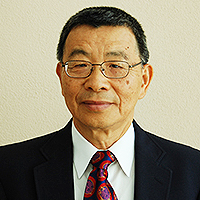Determining the use and value of social support in Telerehabiliation Interventions for individuals with Multiple Sclerosis: A narrative synthesis review
Published on: 3rd October, 2017
OCLC Number/Unique Identifier: 7286430437
Background: Telerehabilitation has been identified as an effective treatment that promotes exercise rehabilitation in individuals with multiple sclerosis (MS). Social support is recognised as a core element of such interventions. However further research is needed to consider the role and value of different social support domains.
Aim: Review available literature to assess and synthesise the use and value of social support within telerehabilitation interventions for individuals with MS.
Method: A narrative synthesis was conducted. A systematic search of included articles was conducted. Electronic databases were searched from inception to January 2017. Other search methods were undertaken. Evaluation and synthesis of included articles utilised risk of bias assessment and a 4-stage synthesis process.
Main Results: A total of fourteen studies, involving 718 participants (505 female, 213 male; aggregated mean age 47.6 years) with MS, were included. Esteem support was the most frequently reported method of social support, followed by informational, emotional and tangible. It would appear social support can be beneficial in assisting participants to adhere to treatment interventions. Visual feedback may be directly beneficial to improve impaired balance in individuals with MS. A model for future interventions is provided.
Conclusions: Social support appears to increase the adherence of participants with MS to telerehabilitation interventions. Unique findings provide an indication for the direction and content of future interventions. Further research is necessary to ascertain the optimal types and frequencies of social support delivery and its effect on health outcomes for participants with MS.
The Impact of Telerehabilitation on Physical Therapy Services in Rural Communities
Published on: 3rd May, 2024
Telerehabilitation is a transformative approach to physical therapy, revolutionizing the accessibility of healthcare in rural communities through the strategic use of Telecommunications technology. This novel approach has the potential to significantly enhance the efficacy of healthcare delivery, particularly considering the critical challenges posed by geographical isolation and resource scarcity. This paper explores the multifaceted benefits of Telerehabilitation, including increased access to care and reduced costs, alongside the challenges of technological barriers and privacy considerations. It provides a comprehensive overview of Telerehabilitation’s impact on rural healthcare, emphasizing its capacity to optimize patient outcomes and proposing strategies for effective implementation. The findings of this study suggest that the use of technology to deliver telecare is a key means of delivering equitable healthcare to underserved populations, a promising way to improve access to rural physiotherapy services address the challenge of telehealth resources, and promote the long-term sustainability of rural Telerehabilitation practices.
Development and Evaluation of a mHealth app - (ReMiT-MS app) for Rehabilitation of Individuals with Relapsing-remitting Multiple Sclerosis - A Mixed Methods, Pragmatic Randomized Controlled Trial - Study Protocol
Published on: 3rd July, 2024
Background: Delaying or slowing functional loss is a valuable goal of Multiple Sclerosis (MS) rehabilitation. The mHealth app-based exercise rehabilitation intervention is expected to overcome barriers related to routine care of MS. Due to the ubiquitous presence of smartphones, they offer an excellent opportunity for remote monitoring, scheduled interaction with experts, and instruction for exercise in a home environment. Challenges in MS routine care include forgotten rehabilitation steps, limited access to local MS experts, and internal barriers such as low health literacy, mobility limitations, and fatigue, alongside external obstacles like service availability and transport costs.Objectives: To develop a mHealth app that is user-centered and context-specific for rehabilitation of MS symptoms, and to evaluate its clinical and cost effectiveness in individuals with RRMS.Methods: The proposed research will be conducted in two phases; the first phase (Phase 1a) will be focused on the development of mHealth app content (ReMiT-MS app trial I). The pilot phase (Phase 1b), where a prototype of the application will be designed, and its usability will be evaluated. Finally, in the second phase (Phase 2), the clinical and cost-effectiveness of the ReMiT-MS app for the rehabilitation of individuals with RRMS will be evaluated (ReMiT-MS app trial II).Conclusion: The findings of this proposed trial may provide a telerehabilitation platform for individuals with RRMS in a resource-limited setting and establish a low-cost healthcare delivery model. In addition, the results of this research work might open a new window in healthcare delivery in India and similar settings.Trial registration: CTRI/2022/09/045266 [Registered on 06/09/2022]




